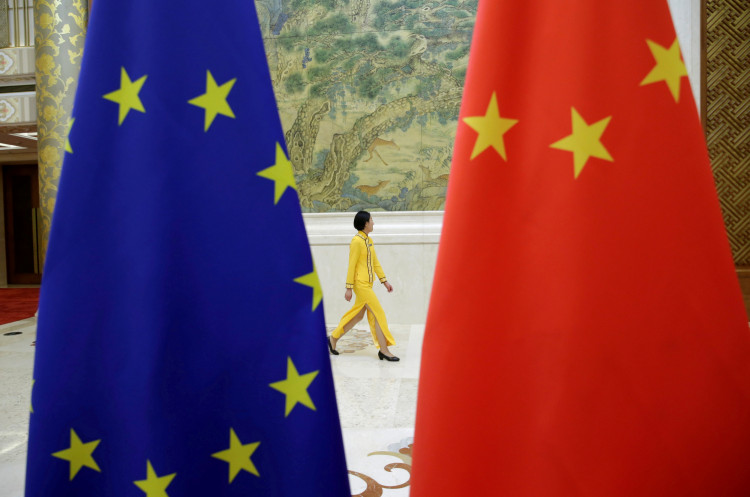The European Union is set to impose new duties on electric vehicle (EV) imports from China by Thursday, following failed talks between Brussels and Beijing aimed at resolving a heated trade dispute. The new measures come as Europe faces growing concerns over China's increasing dominance in the EV market, with Chinese manufacturers benefiting from what the EU describes as unfair government subsidies.
The European Commission, which handles trade negotiations for the 27-member bloc, announced the decision after a lengthy investigation into the pricing practices of Chinese-made EVs. Valdis Dombrovskis, the European Commission's Executive Vice-President, stated on Tuesday, "By adopting these proportionate and targeted measures after a rigorous investigation, we're standing up for fair market practices and for the European industrial base." The duties, he added, will remain in place for five years unless a resolution is reached that aligns with World Trade Organization (WTO) regulations.
The core of the dispute centers on subsidies that China is believed to provide to its domestic EV manufacturers, enabling them to sell vehicles at lower prices in Europe. Chinese-made electric cars have rapidly gained a foothold in the European market, accounting for just 3.9% of the market in 2020 but surging to 25% by September 2023. The EU's concern is that these practices threaten the continent's own EV industry, which is struggling to remain competitive in the face of cheap Chinese imports.
The duties vary depending on the manufacturer. Major Chinese EV players like BYD and Geely will face tariffs of 17% and 18.8%, respectively, while state-owned SAIC, which owns the popular MG brand in Europe, will be hit with a 35.3% duty. Even Western carmakers with manufacturing operations in China, such as Volkswagen and BMW, will face a duty of 20.7%, while Tesla, which has a factory in Shanghai, will be subject to a lower rate of 7.8%.
Germany, the EU's largest economy and home to some of the world's biggest car manufacturers, has been particularly critical of the tariffs. Hildegard Müller, head of the German Association of the Automotive Industry (VDA), described the move as "a setback for free global trade" that risks harming European growth, job security, and industrial competitiveness. Müller stressed that while the auto industry is aware of the challenges posed by China, they believe these issues should be addressed through dialogue rather than punitive tariffs. Germany had opposed the imposition of tariffs in an earlier vote by EU member states.
The European Commission's decision to proceed with the tariffs is part of a broader attempt to safeguard its industrial base and push back against what it views as market-distorting practices. According to the commission, Chinese manufacturers benefit from a range of government subsidies across the production chain, from low-cost land for factories to favorable financing from state-controlled banks. The rapid growth of Chinese EV exports has sparked fears in Europe that local automakers will lose their ability to innovate and manufacture green technology, potentially jeopardizing jobs for 2.5 million people in the EU's auto industry.
However, the fallout from these new duties may not be limited to the auto sector. China has already hinted at possible retaliatory measures, launching investigations into EU imports of dairy, pork, and brandy, suggesting that a broader trade war could be on the horizon. Beijing has labeled the EU's actions as protectionist and warned that they could strain diplomatic and economic ties between China and Europe.
The tariffs come amid a broader shift in Europe's stance toward China. Once seen as a potential strategic partner, China is increasingly viewed as both a competitor and a systemic rival. While the EU remains divided over the best approach to dealing with China-Germany, for instance, continues to push for a diplomatic resolution-Brussels is taking a harder line, particularly when it comes to protecting key industries like automotive manufacturing.
For European automakers, the tariffs represent both a potential lifeline and a challenge. While the duties may help level the playing field by reducing competition from cheaper Chinese imports, they also open the door to retaliatory tariffs from China that could hurt European exports, particularly of luxury vehicles with large engines that are popular in China.
Volkswagen and other major European automakers are already feeling the pinch. Faced with labor strikes and rising costs, Volkswagen is reportedly considering shutting down plants in Germany for the first time in its 87-year history. The ongoing industrial action by German workers demanding higher wages is yet another factor adding pressure on Europe's auto industry, which is grappling with high energy prices and a slowing economy.






